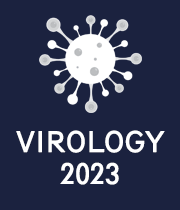Virology 2023 Important Update
This is to inform that Virology 2023 event is now merged with Infection 2023 which will be held on same dates June 21-22, 2023 in Rome, Italy and virtually.
For complete details about the merged event, please visit: https://infectiouscongress.com
For further details, please contact us at infectious@magnusconference.com or call + 1 (702) 988 2320
Zoonotic Viral Disease
A zoonosis (plural zoonoses, or zoonotic diseases) is an infectious disease caused by a pathogen (an infectious agent such a bacterium, parasite, virus, or prion) that has spread from an animal (typically a vertebrate) to a person. The infectious agent is often transmitted by the first infected human to at least one other human, who then infects others. Zoonoses are modern diseases like Ebola viral disease and salmonellosis. Zoonoses are transmitted in a variety of ways. The disease is directly transferred from animals to people by media such as air (influenza) or bites and saliva in direct zoonosis (rabies). When it comes to determining whether animal viruses will be able to replicate in the human body, host genetics is crucial. Animal viruses that are dangerous to humans are those that require only a few mutations to begin reproducing in human cells. These viruses are harmful because the essential mutation combinations could appear at any time in the natural reservoir.
- Emerging Infections
- Cross-Species Transmission
- Virus Evolution
- Reservoir
- Vector
- Molecular Epidemiology

